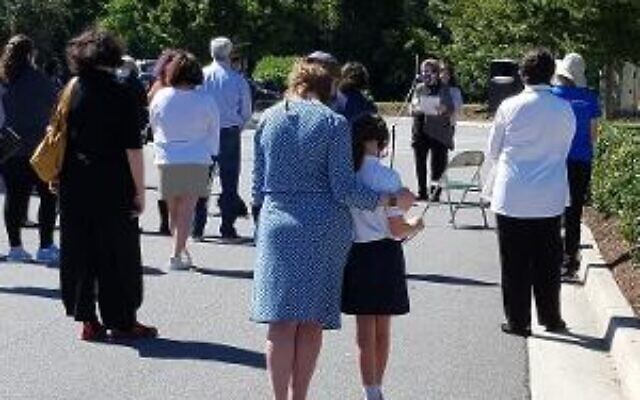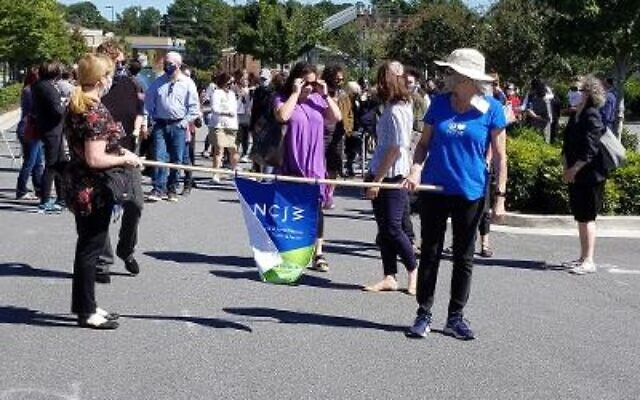Post-Shiva Walk for Ruth Bader Ginsburg
At the end of seven-day mourning period for Ruth Bader Ginsburg, women’s group holds ceremony for the late Supreme Court justice

In the wake of the end of the traditional seven-day Jewish mourning period for the late U.S. Supreme Court Justice Ruth Bader Ginsburg, about 75 Jewish Atlantans took a ritual walk around the block signifying the return of mourners back to the community.
The walk around the City Springs complex in Sandy Springs Oct. 2 followed a short memorial service that had been organized by the Atlanta Section of the National Council of Jewish Women.
Congregation Or Hadash Rabbi Lauren Henderson opened the service by leading the song, “Hineh Ma Tov,” which means “How good and pleasant it is for brothers and sisters to sit together.”
The face-masked audience stood in small clusters separated by at least 6 feet and sang along. Many said that this was the first time they had ventured out into the public since the coronavirus overturned everyone’s lives seven months ago. Several echoed Gene Rubel, who attended along with his wife, Mryna. “I would not have missed it.”
NCJW Atlanta President Sherry Frank recalled the death of Ginsburg on erev Rosh Hashanah, citing the importance of reflecting on “this prophetess of our time and a civil rights hero” who “left an indelible mark” on the country. “Our lives were enhanced by her life and our lives are diminished by her passing.”

Beth Schafer, cantorial chair of Temple Sinai, led the singing of two very pertinent songs: “Another Wave,” which noted another wave of women following in Ginsburg’s path, and “History Will Ask.”
Anna Bauman, a junior at The Weber School, admitted that she had not “realized how much Ginsburg had done for me and other young women” before the recent death of the 87-year-old icon. Bauman told the audience that her research about Ginsburg included watching a documentary about the late justice, which “opened my eyes. She fought for equality for all Americans.” Bauman added that there’s still a lot of work to be done.
Quoting Mishnah, Rabbi Henderson spoke about the importance of minority, dissenting voices which lead the way into the future. Ginsburg was known for her dissenting opinions, which she believed could ultimately become law when her side of the liberal-conservative court became the majority.
In 1973, Ginsburg founded the Women’s Rights Project at the American Civil Liberties Union. In the following years, she argued six major gender discrimination cases before the U.S. Supreme Court, winning five of them.
In 1981, she was appointed by President Jimmy Carter to the U.S. Circuit Court of Appeals for the District of Columbia. Two years later, President Bill Clinton nominated her to the U.S. Supreme Court, becoming only the second woman to be appointed a justice of the Supreme Court.
Before her burial, her body laid in state at the U.S. Capitol – a first for a woman and a first for a Jew.



comments